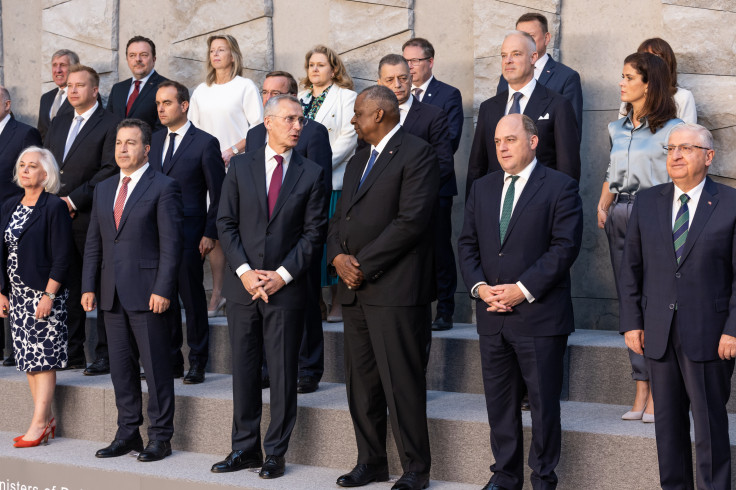Britain joins forces with international partners to provide air defence support to Ukraine
Britain, the United States, Denmark, and the Netherlands are committed to supplying Ukraine with "short and medium-range air defence missiles" to bolster resistance against Russia.

Since Putin's Russia launched its attempted invasion of Ukraine back in February 2022, powers such as Britain have come to the aid of Ukraine's resistance by supplying military assistance. The provision of military assistance from some countries has constituted a reversal of previous defence policies which have ruled out providing offensive weapons. For example, Germany and Sweden.
Crucially, Britain has been the second largest provider of military aid to Ukraine, contributing military assistance worth £4.6 billion. This reflects the commitment to the foreign policy objective of restoring Ukrainian sovereignty and territorial integrity, an objective outlined by the British government in this year's Integrated Review Refresh 2023. However, the US is by far the largest provider, contributing $37.3 billion in assistance since February 2022.
What has also been made clear is Britain's long-term commitment to supporting Ukraine's resistance. Back in February, British Foreign Secretary James Cleverly urged allies to support Ukraine for "as long as it takes" in an address to the UN Security Council. Similarly, President of the European Commission Ursula von der Leyen has also stated the intention to support Ukraine for "as long as it takes".
Whilst there is a clear will amongst Western powers to support Ukraine, the supply of military assistance has had limits. Whilst there have been agreements to train Ukrainian fast jet pilots, Britain has declined to supply combat fighter aircraft to Ukraine. That is, "at least in the short term", according to a Research Briefing from the House of Commons Library.
However, as announced Thursday, on the 15th of June, the British government joined forces with Denmark, the Netherlands, and the United States to deliver air defence equipment to Ukraine.
In this context "air defence equipment" means "short and medium-range air defence missiles and associated systems". British Defense Secretary Ben Wallace has said that the new support "will help Ukraine support offensive operations and protect critical national infrastructure". Consisting of mostly Soviet-era missiles, the delivery of equipment is already underway and set to be completed in the coming weeks.
Britain's involvement in the supply of air defence equipment was announced at a meeting of the Ukraine Defence Contact Group (UDCG), where a joint statement was delivered by the four countries as international partners. Led by the United States, the group facilitates cooperation among approximately 50 nation-states to provide varied forms of military assistance to Ukraine. Among those nation-states are all of NATO's 31 members.
The air defence equipment given to Ukraine will be procured using a major new fund which will provide "hundreds of short and medium range air defence systems" necessary to help Ukraine defend itself. The support comes as Russia is persistent in "brazen missile and drone attacks" on Ukraine's cities.
Also on the international agenda for the Defense Secretary has been a meeting of NATO defence ministers at NATO HQ in Brussels which was concluded today on the 16th of June. The meeting has given members of the military alliance a chance to prepare for next month's NATO leaders summit, which is set to be held in Vilnius, the capital of Lithuania.
In his opening remarks at today's meeting of NATO defence ministers, NATO Secretary General Jens Stoltenberg referred to "Putin's war of aggression against Ukraine" as "the most serious threat to Euro-Atlantic security for a generation". Stoltenberg went on to highlight NATO's strength in Europe, referring to the doubling of "the number of multinational battlegroups from the Baltic to the Black Sea".
Moreover, NATO activity in recent months has sought to demonstrate and practice the military strength of its members in Eastern Europe as geopolitical tensions with Russia continue.
The NATO Secretary General has also welcomed the measures taken by Britain, the Netherlands, Denmark, and the United States to supply "short and medium-range air defence missiles".
© Copyright IBTimes 2025. All rights reserved.




















